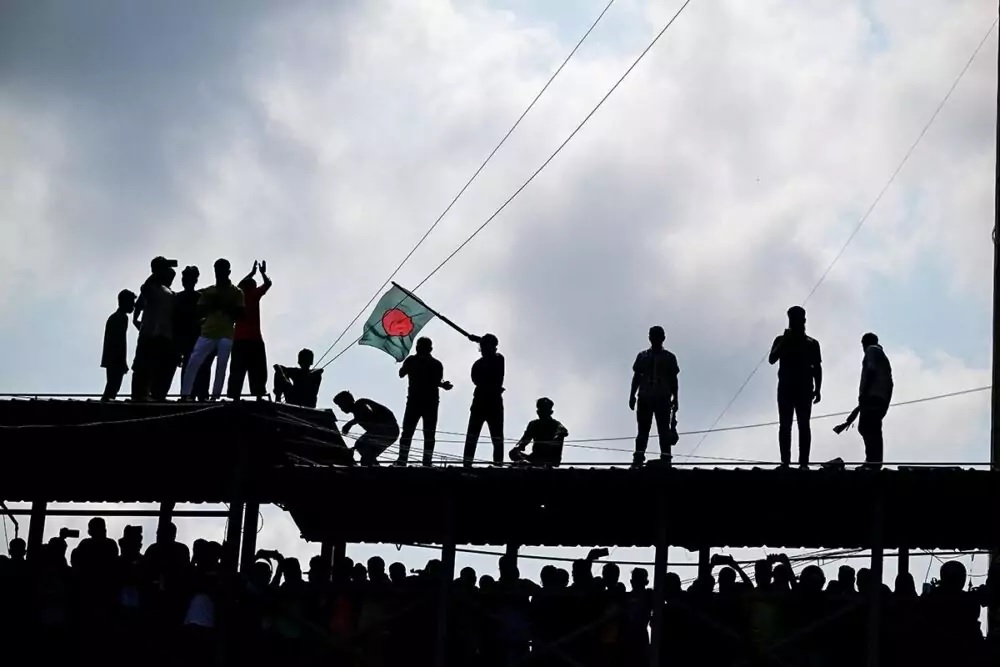Looking back on the investment summit: Big promises, fragile realities

The Bangladesh Investment Development Authority (BIDA) and the Bangladesh Economic Zones Authority (BEZA) jointly organised the 2025 investment summit from April 7 to April 10. In an unstable political climate, this marked a significant effort by the interim government to present the country as an attractive and strategic investment hub in South Asia. The event attracted around 450 foreign investors and delegates from 40 countries. It hosted around 150 B2B and B2G meetings to connect decision-makers with actionable opportunities. In comments later shared with the media, the BIDA chairman said the summit secured investment declarations totalling Tk 3,100 crore. It also gave hope for raising investments when FDI inflows have remained low. According to Bangladesh Bank, in FY2024, net FDI inflows stood at USD 1,468.17 million, reflecting a decline of USD 141.60 million—or 8.8 percent—compared to the previous fiscal year.
Following the summit, it was also revealed that a pipeline of potential investments would be developed based on expressed interest, with a roadmap spanning 18-24 months to ensure the commitments lead to tangible, long-term outcomes. The summit also marked the signing of a preliminary investment agreement by two foreign firms, including Handa Industries, a prominent China-based apparel manufacturer known globally for its expertise in high-quality knitted textiles, dyeing, and garments.
The 2025 summit represented a notable evolution from previous editions—not just in presentation, but in intent. While earlier summits often resembled high-profile networking events lacking clear follow-up, this year's gathering felt more focused. Organisers made a conscious effort to acknowledge past shortcomings, including Bangladesh's challenges in ease of doing business. But the question remains if the government can follow up on the promises properly. BIDA Chairman Chowdhury Ashik Mahmud Bin Harun talked about a "true one-stop service," or a relationship manager model, especially as the previous online One Stop Service (OSS) faced allegations of negligence. BIDA is set to integrate five key business start-up services into a single application by the end of September. These services include name clearance, company registration, trade licence, TIN certificate, and bank account opening.
At an MoU signing event in late May, BIDA signed agreements with the National Board of Revenue (NBR), Registrar of Joint Stock Companies and Firms, Dhaka South and Dhaka North city corporations, Chattogram City Corporation, and Sonali Bank. If BIDA can effectively implement the proposed changes to its model, it would be a highly positive and welcome development.
The post-summit speech of the BIDA chairman garnered praise for the eloquent manner in which it was delivered. As much as this is praiseworthy—a different sight from the usual boring scripted speeches—the question is, how much investment can Bangladesh attract in the long term? Ultimately, what truly attracts investors is the on-the-ground initiatives. According to the World Bank's 2024 Business Ready report, Bangladesh scored poorly in Business Insolvency (40 out of 100), Dispute Resolution (42), and Market Competition (43), underscoring longstanding institutional weaknesses that continue to undermine investor confidence. Public service delivery (41) also remains weak, with unreliable utility services and bureaucratic delays hampering business operations.
It may be recalled that just as officials at the summit were urging investors to come to the country, the safety of foreign brands came into question. The scenes of broken glasses in KFC outlets and looted showrooms of Bata on April 7-8 during pro-Palestine protests painted a different picture than the summit wanted to show. Despite this setback, BIDA and the police force were swift to arrange a meeting with the officials from six foreign companies whose facilities were damaged. Police also announced plans to provide foreign investors with direct access to a dedicated emergency hotline, allowing prompt incident reporting and immediate assistance. This was a commendable initiative from BIDA's broader mission to position Bangladesh as a safe, sustainable, and investor-friendly destination.
The BIDA chairman also talked about Vision 2035 where Bangladesh will be a destination like Singapore or Thailand. There was, however, little mention of current economic indicators, geopolitical risks, or real-time data to justify this confidence. There was mention of a high return on equity (ROE) between 56.1 percent and 80.9 percent, which is even higher than the global average. But if the returns are truly that high, why hasn't it translated into a surge of investor interest? One missing link here is political stability, which usually attracts investors, as evidenced by the relatively high FDIs whenever an elected party comes into office. Moreover, Singapore's success was built on the foundation of strong institutions—something that Bangladesh struggles with due to persistent corruption. The plan to unify government agencies under one interface and create a "Private Sector Advisory Council" is ambitious, but details were lacking. How will this council be structured? What powers will it hold? How will conflicting interests between ministries be resolved?
In the end, it remains unclear whether the summit's promises and commitments will bring real change, and consequently greater investments, or they will simply fade away like many before them.
Sudeepto Roy is a research associate at the South Asian Network on Economic Modelling (SANEM). He can be reached at sudeeptoroy232@gmail.com.
Views expressed in this article are the author's own.
Follow The Daily Star Opinion on Facebook for the latest opinions, commentaries and analyses by experts and professionals. To contribute your article or letter to The Daily Star Opinion, see our guidelines for submission.



 For all latest news, follow The Daily Star's Google News channel.
For all latest news, follow The Daily Star's Google News channel. 



Comments